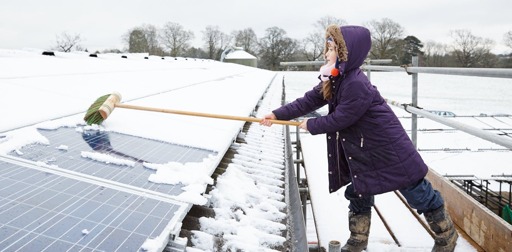Food is the big one that clearly has to change, its not possible to reduce the CO2 impact of meat and that will have to change. Its also going to be required to change the gas boiler for a heat pump or electrical heating, cars replaced by Electrical Vehicles and to stop using airplanes. The electrical side which is making progress is only about a third of the CO2 production and all the other producers also need addressing.
What a lot of personal CO2 calculators currently do is conflate primary CO2 production (your burnt the fuel in your device) and secondary (you bought from a company and they emitted) but things like meat and airplanes we know there isn’t a technical solution to reducing CO2 so even though they are sort of secondary uses we still have to count their impact and change out behaviour if we want a habitat humans. The same is not true for transit miles and other goods which often get included but which could largely be made with electricity given the transition that must occur, which is a cost that will fall onto business.
Before we move over to heat pumps and electric heating, a lot of work needs to be done on insulating homes.
A heat pump is not more efficient if you have to run it 24/7 to try keeping up with heat loss from single glazed windows and drafts from knackered doors etc.
Sure things can always go quicker, but this one is at least already on the right trajectory, and luckily that’s the hardest one for a government to influence.
The government should definitely be heavily subsidizing heat pump replacements (then after a while ramping up gas duty as the stick) and bring back the solar panel subsidies though. And yes shove every penny necessary to get HS2 done to completion so we can get started on HS3 and completely disincentivise short haul flights. All the while building as many wind, tidal and solar farms as possible to power it all—bonus points if we can get a surplus Vs our immediate neighbours.
If we’re all dead the money doesn’t matter, so it should be spent on ensuring survival.
Vat meat is likely the long term future. IE lab grown but more efficient.
Vegonism will become more common. But is not going to be 100% or even close in time to have an effect. Or likely ever as that effect is its biggest sell atm.
But lab grown meat can manage and use CO2 where as its hard to do so with live animals.
But arible farming is still a huge user of CO2 and really not being pushed to cha ge rapidly. Cost is still seen as more important then green energy use.
I’m actually really looking forward to lab grown meat becoming an established industry. Not just for the benefits to the environment and animal welfare but because you could feasibly grow the finest lobster meat, fois gras, wagyu steaks etc etc on industrial scales which would lead to much lower prices.
You could even get in to really exotic meats like mammoth, platypus and giraffe or whatever else.
VAT on meat you say…





